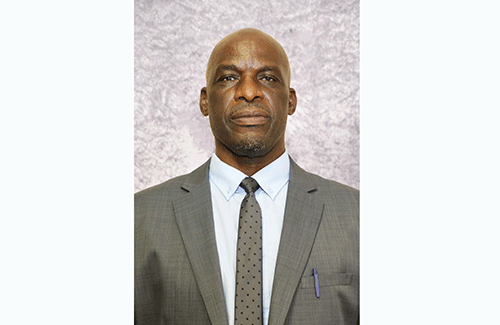Some National Council lawmakers are in support of a motion that calls for an urgent investigation into the causes of the 2022 high failure rate which saw many learners not making the cut for university entry requirements.
The 2022 grade 11 Namibia Senior Secondary Certificate Ordinary and grade 12 Advanced Subsidiary levels (NSSCO and NSSCAS) results show that only 8 133 pupils or 24% qualified for tertiary education from the 38 019 candidates who sat for the 2022 national exams.
This prompted National Council member of parliament Kosmas Katura who is also a member of the standing committee on education, science, ICT and youth development to move the urgent motion last week, without notice, to probe the high failure rate.
Katura argued education used to be and should still be “the key to the future” but the high failure rate of last year, of which only 15% of the learners passed their examinations, makes this motto empty and without meaning.
According to him, the high failure rate is a disappointment and this is so because there is little return on investment from the huge chunk the education sector gets from the national budget.
Needless to say, all over the world, he said, the countries which developed are those that seriously invested in education and ensured that they get better results.
Katura said he is aware that education minister Anna Nghipondoka formally presented a report on the issue of the high failure rate to President Hage Geingob.
“Unfortunately, we are yet to hear what is contained in the report but this does not prevent us from executing our constitutional mandate to investigate and interrogate this matter of national concern,” the MP reacted.
Fellow MP Bethuel Tjaveondja also supported the urgent motion.
“I wish to acknowledge the many important issues which he raised from the preliminary observations of the committee and which I agree are worth deliberating and investigating further. In this regard, I move that this august house refer this matter to the Standing Committee on Education, Science, ICT, and Youth Development to formally investigate the causes for the high failure rate,” Tjaveondja moved.
The MPs want the committee to pay particular attention to the learner-teacher ratio; the introduction of the new curriculum and the teacher readiness among others.
Katura contends that a new curriculum (or subject contents) was introduced but it is not certain whether teachers were prepared and equipped to deliver the new curriculum.
“No prior needs assessment was undertaken to confirm the schools’ readiness for the new curriculum and the ministry of education generally does not afford the Namibian teaching community opportunities to regularly undergo retooling exercises (get new knowledge and skills) in their respective areas of teaching,” the MP noted.
Other issues the lawmakers want to be investigated are the knock-on effect of the high failure rate on the intake of students at tertiary education levels; the existence and robustness of a monitoring and evaluation system within the education system.
“Another important reason being cited for the high failure rate is the automatic transfer of the grade nine learners of 2020 to the next grade while they did not demonstrate mastery of the syllabus at that level. Regrettably, it is being projected that the high failure rate is consequently going to continue for the next three years or so,” Katura moved.
Further, he believes the automatic transfer and consequent high failure rate had a knock-on effect on the intake of students at the tertiary education levels as the universities had to lower their requirements and or initiate bridging courses to accommodate the many students who would otherwise be at home and on the streets.
The impact of the implementation of universal primary and secondary education in relation to the financing of education; and the impact of the availability of financial and other resources on the education system are some of the issues raised.
Procurement processes and arrangements and their impact on the education system; and the extent of access to the internet and use of ICT facilities are also deliberated to be investigated.
Following the dismal outcome of the 2022 NSSCO and AS results, the education ministry promised targeted immediate intervention strategies which will be carried out at all levels, especially at regional offices and schools with support and monitoring, and evaluation from the head office.
Addressing staff members last week, Nghipondoka said the targeted intervention strategies will be done within the minimum resources. – anakale@nepc.com.na



